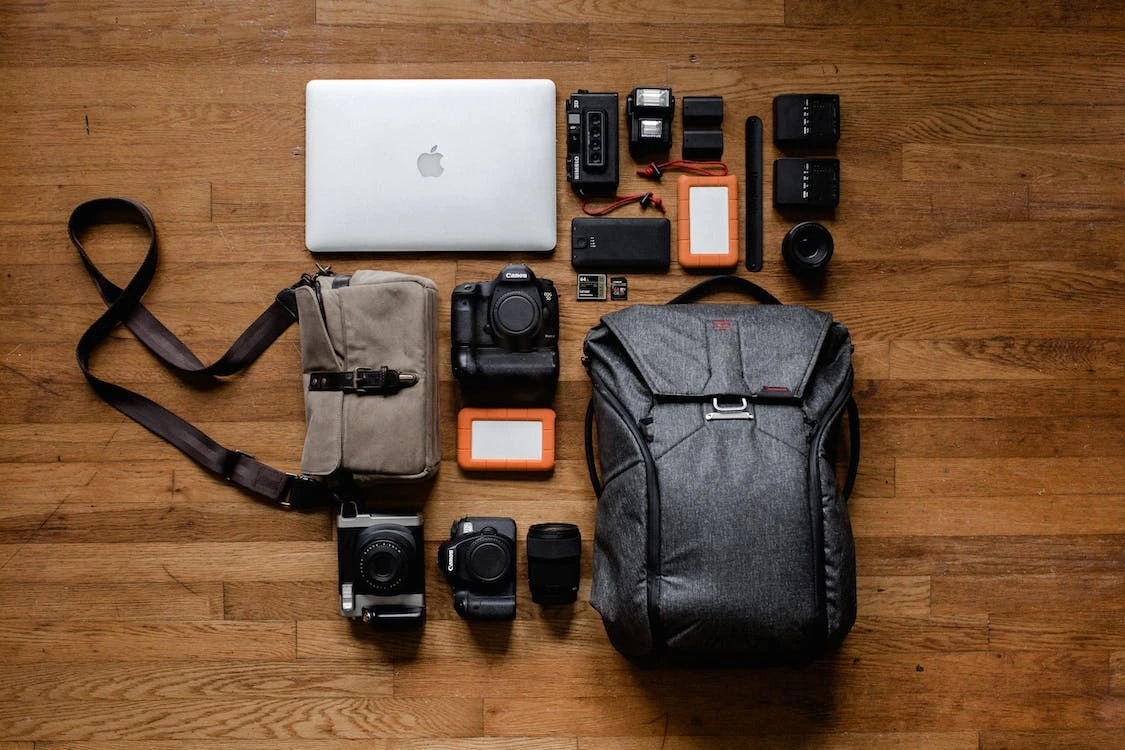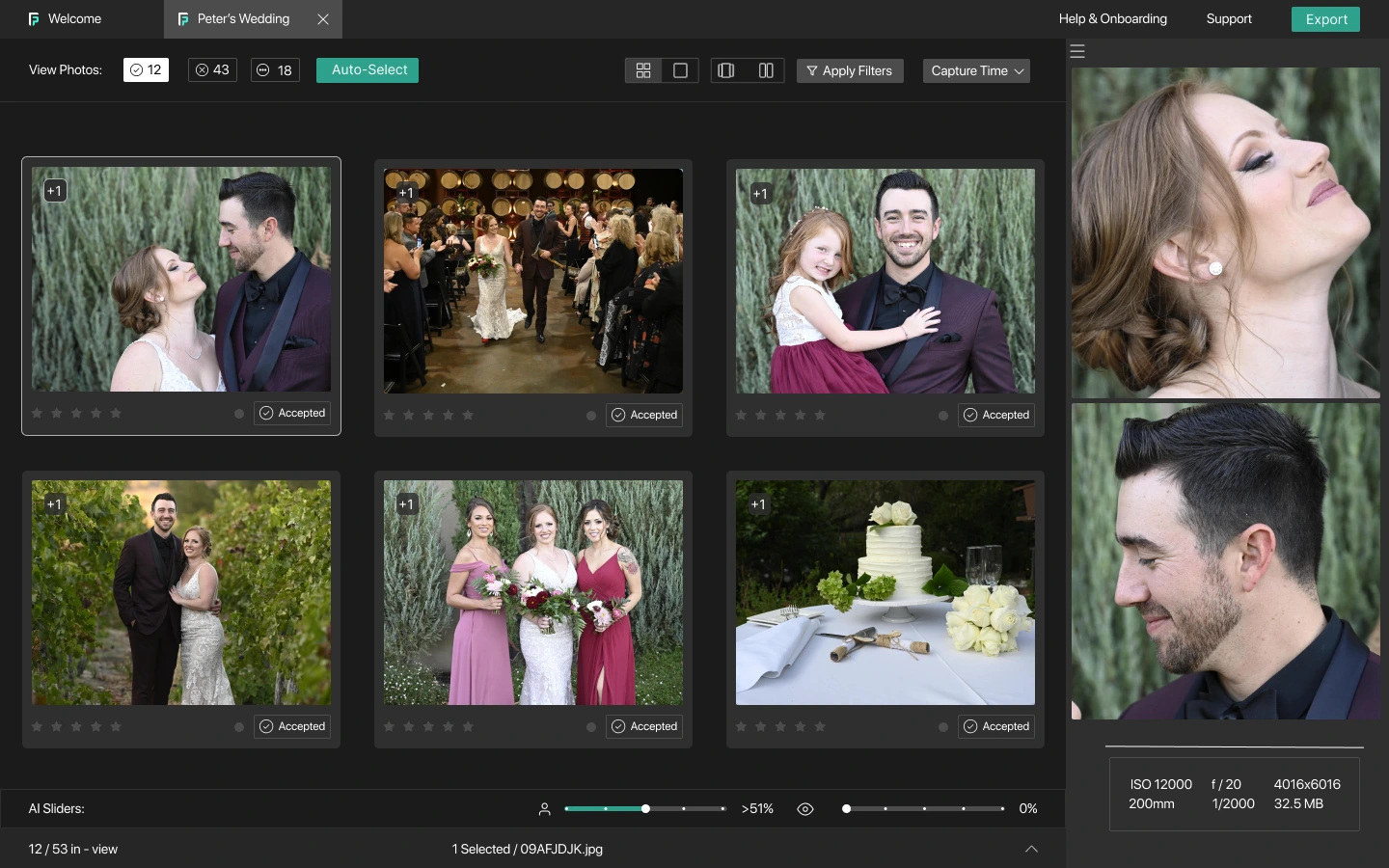The photography business is one of the booming businesses right now. The opportunities present in the field and the scope of growth, are both endless.
According to an article by Adorama, full-time photographers can make as much as 30,000-75,000 USD per year and some make even more than that.
This is an exciting career option for people that have photography as their passion but a lot of them have doubts while transitioning to full-time photography.
We have noted down some tips that can help such people transition into their dream job and start a photography business as a full-time profession:
- Investing in a photography course
- Define your niche and find your target audience
- Get the right types of equipment
- Find a photography mentor
- Build your portfolio
- Registering your photography business
- Have a business plan
- Using smart AI tools to work efficiently
- Marketing your business
- Network with other photographers
Investing in a photography course:

While transitioning to a full-time photography business, you might be having some doubts about certain things such as creating a business plan, setting your goals, positioning yourself, etc, or a skill set in general such as lighting, posing, etc.
Thankfully, there are a lot of photography educators that share their experiences and knowledge about such topics.
If you are just starting out, you can look into investing in their courses that can help grow your business within a certain photography niche, or if you’re just not confident about a skillset such as editing or posing, you can look into free online workshops/videos that can help you be more confident about those.
Define your niche and find your target audience:

Photography is a crowded market, especially in the online world. It is important to define your target audience and find your niche where you can stand out.
Having a clear understanding of who is your target market also helps in tailoring the business and marketing strategy toward them. This will also help you specialize in that area and understand the needs of your target audience better.
Get the right types of equipment:

Every photography job requires a certain type of photography equipment. The lens used in a portrait shoot may not be a good choice for wildlife photography.
The same goes for the quality of equipment. Clients expect a certain standard of quality when they are working with professional photographers. So going for beginner-quality cameras is not a great choice for professional photographers.
Keeping both quality and type of equipment in mind, one should be careful in investing in the following items:
- Cameras: Probably the most important equipment to choose from. Be aware of what kind of lens can support the camera, if you want to have a DSLR or Mirrorless, full frame or APSC, etc.
- Lens: If you should be investing in a prime lens or zoom lens and what kind of focal length is your best option?
- Lighting equipment: As a professional photographer you may need to invest in lighting strobes, reflectors, or softboxes.
- Tripod: For sharp and blur-free images, invest in a good tripod.
- Memory cards: A good quality memory card helps in taking and storing multiple images at once in a speedy manner.
- Backup drives: It’s important to have a backup of all your RAWs and edited files stored in a physical hard drive for a certain time.
Overall, it’s necessary to do the research and invest in the correct type of equipment carefully that is reliable, high quality, and suitable for the kind of photography you are practicing.
Find a photography mentor:

Finding a photography mentor who is experienced in your niche can be an invaluable resource for anyone who’s starting a photography business.
Not only a good mentor provides you with guidance on how to achieve your goals but they also keep you accountable towards them and motivated to achieve them.
You are provided with personalized support from them which is tailored towards achieving your goals.
A mentor can also help you avoid mistakes that they or a lot of photographers make when starting their business.
It’s a great idea to have a photography mentor while starting out your photography business overall.
Build your portfolio:

Building a portfolio to show your vision and style is an important thing when it comes to starting a photography business.
Clients like to see what they are working with. Having a strong portfolio will not only impress your clients but also set some expectations for what they will get working with you.
Create an online portfolio of your best work following a certain theme, and style. Keep updating it with a variety of subjects showing your range as a photographer.
Registering your photography business

It is important to have your photography business registered as a separate entity in the form of a sole proprietorship or partnership (in case you’re working with someone).
Make sure you have the required licenses for operating the business in your locality.
This also makes things official and clear while you’re working with a client and you have a contractual agreement with them to avoid any disagreement regarding the work.
You can also get insurance for your business in order to secure your photography equipment from any damage, theft, etc
Having a separate bank account for your business is also a smart move as it helps you keep track of all your expenses.
Have a business plan:

It is crucial to have a well-defined business plan while starting out your photography business.
Having a well-defined business plan helps in making investment and marketing decisions, creating pricing structure, set goals-both short and long-term for your business.
You don’t need a business degree to work this out. There are plenty of courses available online that can teach you in detail about creating a photography business plan.
Using smart AI tools to work efficiently:

With the advancement of AI and technology, photographers can now make great use of AI tools that can help them save time and effort in their workflow.
There are different types of tools that can help in different parts of their workflow.
Photographers can use a CRM service to get online bookings and send contracts and invoices automatically.
There is AI photo culling software to automatically tag photos with blinks and blurry photos as rejects and AI editing software to automatically edit photos within a few minutes.
Online gallery platforms to share the photos with the clients (with a soundtrack!) to create a seamless experience.
Check out our list of AI photography workflow tools here.
Marketing your business:

Marketing is important for all kinds of businesses, especially photography businesses.
While there are dozens of different methods and channels to market your business, you can start out by simple word of mouth.
Word of mouth can be a powerful and cheap way to market your photography business. Take the help of your family and friends to spread out the word. Offer discounts and seasonal offers/ discounts.
You can also try digital marketing for your business.
You can use social media as a portfolio and a platform to a platform share/offers give updates about your photography business.
Facebook and Google ads are another way to get traffic to your photography business and collect leads for your business.
Network with other photographers:

Networking with like-minded photographers can help you broaden your knowledge and give you a new perspective to view different things related to business.
You can join a local photography club or a Facebook photography group that is more tailored to your photography niche. You can create new friends and experienced mentors that can guide you on your journey to starting a photography business.
This also opens new opportunities for new collaborations and joint projects. Networking also helps in building word-of-mouth marketing where photographers can refer their clients to you when they are not available to take on the project.
Conclusion
So in conclusion, starting a photography business is totally worth it if you enjoy photography and have the passion to work hard and with determination to meet your financial goals.
With the tips outlined in this blog, you should be all set for starting your journey as a professional photographer. If you are looking for photography educators that can help you kickstart your photography career, check out our blog for the best photography educators.